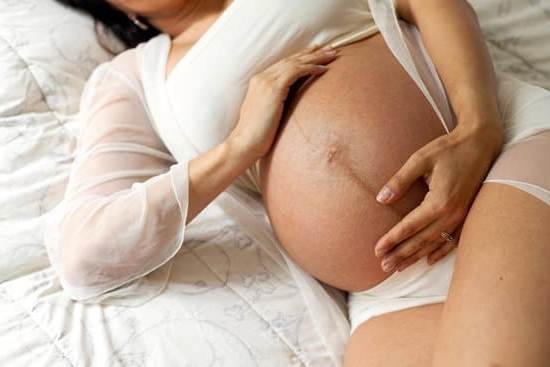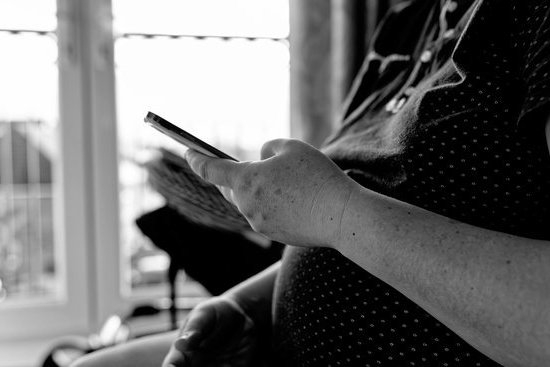Pregnancy symptoms are the physical and emotional changes that occur in a woman’s body after conception. It is important for women to be aware of when pregnancy symptoms typically start, as it can signify the beginning of a new chapter in their lives. Understanding the onset of these symptoms allows individuals to take necessary steps in ensuring their health and well-being throughout the duration of their pregnancy.
Some women may experience early signs of pregnancy even before a positive pregnancy test, which can include missed periods, morning sickness, breast tenderness, and fatigue. But how soon can these symptoms be expected?
Factors such as implantation bleeding, hormones, individual differences, and stress all play a role in determining when these signs may appear. In this article, we will delve into the timeline of pregnancy symptoms and how they develop in order to provide valuable information for those seeking clarity on this topic.
Early Signs of Pregnancy
Pregnancy symptoms can be the first indication that a woman may be pregnant. It is important to know when these symptoms typically show as it can help in confirming a pregnancy and taking necessary steps for prenatal care. The early signs of pregnancy may vary from woman to woman, but there are some common symptoms that many women experience.
Some early signs of pregnancy include:
- Missed period
- Nausea and vomiting
- Breast tenderness
- Fatigue and tiredness
One of the most well-known early signs of pregnancy is a missed period. Many women start to suspect they are pregnant when their period does not arrive on time. This is often the first indicator that prompts women to take a home pregnancy test. Nausea and vomiting, commonly referred to as morning sickness, can also be an early symptom of pregnancy.
These symptoms can occur as early as 2 weeks after conception and may last throughout the first trimester. Breast tenderness, or sore and swollen breasts, can also be an early sign of pregnancy due to hormonal changes in the body. Additionally, fatigue and tiredness are common in early pregnancy due to increased levels of progesterone.
Overall, these early signs of pregnancy usually begin around 4-6 weeks after conception. However, individual differences in experiencing symptoms can affect when they appear and how severe they are for each woman. Knowing about these early signs of pregnancy can help individuals better understand their bodies and seek appropriate medical attention if needed.
Implantation Bleeding
Explanation of Implantation Bleeding
Implantation bleeding is a common early sign of pregnancy that occurs when the fertilized egg attaches itself to the uterus lining. This can lead to slight bleeding which is often lighter in flow and shorter in duration compared to a regular period. In some cases, women may mistake this for a light period, but implantation bleeding typically occurs around 6-12 days after conception.
How It Differs From a Regular Period
One key difference between implantation bleeding and a regular period is the timing and duration. Implantation bleeding usually occurs earlier than a normal period and often lasts for only a couple of days. Additionally, the flow is typically much lighter than a regular period. It’s important to note that not all women experience implantation bleeding, so its absence does not necessarily rule out pregnancy.
Timing of Implantation Bleeding in Relation to Pregnancy Symptoms
Implantation bleeding may occur around the same time as other early signs of pregnancy such as breast tenderness, fatigue, and nausea. However, it’s essential to understand that every woman’s body is different, so while some may experience implantation bleeding alongside other symptoms, others may not notice any bleeding at all.
Understanding the timing and potential occurrence of implantation bleeding can provide valuable insight into how long it takes for pregnancy symptoms to show and aid in identifying early signs of pregnancy.
Factors Affecting Onset of Symptoms
Individual Differences in Experiencing Symptoms
It’s common for women to wonder how long it takes for pregnancy symptoms to show after conception. However, it’s important to note that the timing of symptom onset can vary greatly from person to person.
Some women may start experiencing early signs of pregnancy within a few weeks of conception, while others may not notice any symptoms until several weeks into their pregnancy. This individual variation is influenced by factors such as overall health, genetics, and sensitivity to hormonal changes.
Role of Hormones in Symptom Development
The onset and intensity of pregnancy symptoms are closely linked to hormonal changes in the body. After conception, the body begins producing higher levels of hormones such as estrogen and progesterone, which can lead to symptoms like breast tenderness, fatigue, and nausea. These hormonal fluctuations can also affect mood and appetite. However, the specific impact of these hormones can differ for each woman, contributing to variations in the timing and severity of pregnancy symptoms.
Stress and Its Impact on Pregnancy Symptoms
Stress is another factor that can influence the onset of pregnancy symptoms. Research has shown that high levels of stress can disrupt hormonal balance in the body, potentially delaying or exacerbating pregnancy symptoms.
Additionally, stress can manifest physically through symptoms like headaches or digestive issues, which may be mistaken for early signs of pregnancy. It’s important for individuals trying to conceive or those who suspect they may be pregnant to manage stress effectively in order to support overall reproductive health.
Home Pregnancy Tests
One of the most common ways to determine if you are pregnant is by taking a home pregnancy test. These tests work by detecting the hormone human chorionic gonadotropin (hCG) in your urine, which is produced once a fertilized egg implants in the uterus. But how long does it take for pregnancy symptoms to show before you can take a home pregnancy test?
In general, most home pregnancy tests claim to be 99% accurate on the day of your missed period. However, some sensitive tests may be able to detect hCG levels earlier than that, possibly as early as 7-10 days after ovulation.
It’s important to keep in mind that every woman’s body is different, and hCG levels can vary greatly from person to person. Therefore, if you suspect you may be pregnant but receive a negative result on a home pregnancy test, it may be worthwhile to wait a few more days and retest.
It’s also important to note that the accuracy of home pregnancy tests can also depend on how they are used. Following the instructions carefully and taking the test at the right time of day can impact its reliability.
Additionally, certain medications or medical conditions can potentially affect the results of a home pregnancy test. If you have any concerns about your results or are unsure about how to interpret them, it’s always best to consult with a healthcare professional for further guidance.
Common Misconceptions
Many women often find themselves questioning how long it takes for pregnancy symptoms to show. There are several myths and misconceptions surrounding the onset of pregnancy symptoms, which can lead to confusion and anxiety for those who are trying to conceive or suspect they may be pregnant. It is important to address these misconceptions in order to provide accurate information and peace of mind for those in this situation.
To debunk one common misconception, it is important to note that not all women will experience pregnancy symptoms at the same time. Every woman’s body is different, and individual factors such as hormone levels, overall health, and stress can impact when pregnancy symptoms begin to manifest. Therefore, it is crucial for individuals to understand that there is no universal timeline for when pregnancy symptoms will appear.
Another misconception that often arises is the difficulty in differentiating between early pregnancy symptoms and premenstrual syndrome (PMS) symptoms. While some early signs of pregnancy, such as breast tenderness and fatigue, can overlap with PMS symptoms, there are specific indicators such as implantation bleeding and heightened sense of smell that are more indicative of early pregnancy. It is important for individuals to educate themselves on these nuances in order to accurately recognize potential signs of early pregnancy.
Overall, understanding the common misconceptions surrounding the onset of pregnancy symptoms can help alleviate worries and uncertainties for those who are eager to know if they may be expecting. By being informed about these misconceptions, individuals can better navigate their own experiences and seek proper confirmation through home pregnancy tests or medical consultations.
- Myth debunking about pregnancy symptoms
- Differentiating between early pregnancy symptoms and PMS
Timeline of Pregnancy Symptoms
Pregnancy symptoms can vary greatly from woman to woman, making it difficult to predict exactly when they will show. However, generally, most women start experiencing symptoms of pregnancy within a few weeks of conception. One of the earliest signs is a missed period, which can occur about two weeks after conception. This is often the first indication that a woman may be pregnant and prompts many to consider taking a pregnancy test.
In addition to a missed period, nausea and vomiting are common early signs of pregnancy. These symptoms can start as early as two weeks after conception and are often referred to as morning sickness. Breast tenderness and swelling can also be one of the first noticeable signs of pregnancy, occurring around the same time as other early symptoms. Fatigue and tiredness are also common in the early stages of pregnancy and can begin as soon as one week after conception.
It’s important to note that individual differences play a significant role in when pregnancy symptoms show and how intense they may be. Factors such as hormonal levels, stress, and overall health can impact the onset of these symptoms. Understanding the timeline for when pregnancy symptoms typically appear can help women recognize changes in their bodies and take appropriate steps for prenatal care.
Conclusion
In conclusion, the timing of when pregnancy symptoms show can vary from woman to woman, but there are some common early signs to look out for. These can include a missed period, nausea and vomiting, breast tenderness, and fatigue. Understanding the early signs of pregnancy is important for those who are trying to conceive or who may have had unprotected sex and want to be aware of their body’s changes.
Implantation bleeding is another key factor that can indicate pregnancy, occurring around 10-14 days after conception. However, it’s essential to know the difference between implantation bleeding and a regular period in order to recognize potential early pregnancy symptoms. Factors such as individual differences in experiencing symptoms, hormonal changes, and stress also play a role in when pregnancy symptoms may appear.
It’s important for those who suspect they may be pregnant to take a home pregnancy test at the right time for accurate results. These tests work by detecting the hormone hCG in urine, and different tests have varying levels of sensitivity in detecting early pregnancy.
Additionally, debunking myths about pregnancy symptoms and understanding the timeline of when different symptoms may appear can help individuals better navigate their own experiences with potential pregnancy. Overall, being informed about pregnancy symptoms is vital for anyone who may be facing the possibility of being pregnant so that they can make informed decisions about their next steps.
Frequently Asked Questions
How Early Can You Show Signs of Pregnancy?
Signs of pregnancy can appear as early as a few days after conception, though most women start noticing symptoms around the time of a missed period. These signs can include breast tenderness, fatigue, nausea, and frequent urination.
What Are the Symptoms of Pregnancy at 1 Week?
At 1 week pregnant, many women may not experience any noticeable symptoms yet. Some women may feel some mild cramping or bloating, and they may also have some light spotting due to implantation. However, for most women, it’s too early to notice any significant pregnancy symptoms at this stage.
How Early Can You Detect Pregnancy?
Pregnancy can be detected as early as 7-10 days after conception through a blood test at a doctor’s office. Home pregnancy tests can usually detect pregnancy hormones in urine about 1-2 weeks after conception, although for more accurate results it’s best to wait until the first day of a missed period before testing.

Welcome to my fertility blog. This is a space where I will be sharing my experiences as I navigate through the world of fertility treatments, as well as provide information and resources about fertility and pregnancy.





